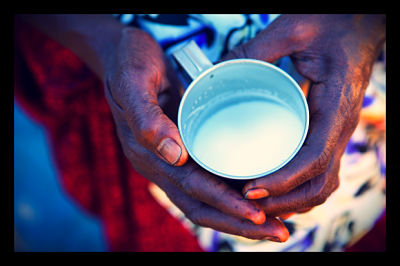
Dhaka, Aug. 4 -- Camels have long been central to Somalia's pastoral lifestyle - providing food, transport and cultural identity. But now, they are at the forefront of an agricultural transformation that promises to reshape Somali farming and economy.
On a recent mid-June morning, the Associated Press visited Beder Camel Farm, a new-generation dairy farm located just outside Mogadishu. Dozens of camels were seen grazing in sandy enclosures, while workers carefully milked others, collecting the yield in sanitized containers.
Demand for camel milk is on the rise, fueled by local entrepreneurs tapping into the economic and nutritional potential of this age-old resource.
Modernising milk production
Somalia has the world's largest camel population - more than 7 million - but until recently, only a small portion of camel milk ever made it to urban markets.
Driving the change is Dr Abdirisak Mire Hashi, a veterinarian and manager of Beder Camel Farm. For him, the goal is not just commercial - it's about safeguarding Somali heritage while embracing modern techniques.
"Raising camels is part of Somali identity, but the approach to camel farming is evolving," Hashi said.
At Beder, each camel can now produce up to 10 litres of milk per day - nearly double the average from traditional methods - thanks to improved veterinary care, scientifically balanced feed and hygienic milking techniques. Camels are regularly examined, fed with nutritious supplements, and provided with specially prepared fodder.
Climate change driving up grocery prices globally
Established in 2006, Beder was one of Somalia's first commercial camel dairies. Its CEO, Jama Omar, said the company now commands about 40% of the market and employs nearly 200 full-time workers, with additional seasonal hires during peak times like planting and harvesting.
Pioneering camel milk yogurt
Among its innovations, Beder runs Somalia's first factory dedicated to producing yogurt from camel milk.
Inside the facility, technicians process fresh milk into yogurt, which is then sold under the Beder brand across Mogadishu's supermarkets. Kenyan food engineer Nelson Njoki Githu, who oversees production, says camel milk yogurt is a valuable alternative to cow milk, especially for those with lactose intolerance.
"Camel milk contains less lactose and more essential nutrients like vitamin C, iron, and zinc," Githu explained.
Nutritionist Dr Yahye Sholle added that camel milk yogurt also offers health benefits such as improved bone strength, immune support, and gut health due to its high content of calcium, magnesium, and probiotics.
The nutritional benefits have helped Beder's yogurt find a niche in Mogadishu's competitive dairy market.
Looking ahead, Hashi said plans are underway to expand milk collection points beyond Mogadishu and train remote pastoralists in modern techniques and hygiene standards. "If we modernise camel rearing and milk processing, we can generate employment, enhance nutrition, and boost national pride," he said.
Govt support for camel milk sector
The Somali government is encouraging investment in the camel milk sector.
"The benefits of camel milk go far beyond nutrition," said Dr Kasim Abdi Moalim, Director of Animal Health at Somalia's Ministry of Livestock. "In countries like the UAE, camel milk is even used in cosmetics. Somalia must develop its full value chain."
New technique combats chemotherapy hair loss
He said the government has adopted a Dairy Act and a livestock development strategy, and is working on a comprehensive investment plan to support the sector.
As the sun set over the camel paddocks, the gentle pace of the animals served as a metaphor for Somalia's development - slow, but steadily advancing.
From desert journeys to supermarket shelves, the camel's role in Somalia is being redefined - one glass of milk, and one pot of yogurt, at a time.
Source: Agency
